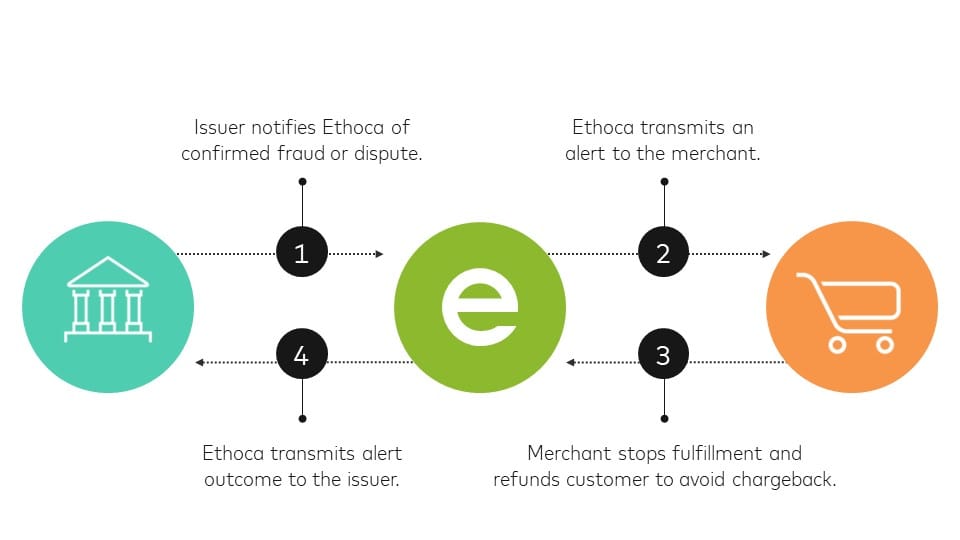
SuperPay helps bookstore owners like yourself get paid as quickly as possible. Choose our platform to power your payments & billing.
Welcome to our blog post series on online optimization for bookstores! In today's digital age, having a strong online presence is crucial for the success of any business, including bookstores. With the rise of e-commerce and the increasing number of people shopping online, it is essential for bookstores to optimize their online platforms to attract and engage customers.
In this blog post series, we will walk you through the basics of online optimization for bookstores, providing you with valuable insights and practical strategies to improve your online presence, increase website traffic, and boost sales. Whether you are a small independent bookstore or a larger chain, these tips and techniques will help you stay competitive in the ever-evolving digital landscape.
We will start by discussing the importance of a strong online presence for bookstores. We will explore why having an effective website and utilizing social media and online communities are essential for reaching your target audience and building brand awareness.
Next, we will delve into the world of search engine optimization (SEO) and its significance for bookstores. We will guide you through the process of conducting keyword research specific to bookstores and share on-page and off-page SEO techniques to improve your website's visibility in search engine rankings.
Additionally, we will explore the power of online advertising and how it can be leveraged to drive traffic and generate sales for your bookstore. We will discuss popular advertising platforms such as Google Ads and Facebook Ads and provide insights on measuring and optimizing ad performance.
Lastly, we will address the important aspect of online sales and order fulfillment. We will help you choose the right e-commerce platform for your bookstore, discuss effective inventory management, and highlight the importance of providing excellent customer service to ensure customer satisfaction and repeat business.
Whether you are just starting to build your online presence or looking to enhance your existing strategies, this blog post series will equip you with the knowledge and tools to optimize your bookstore's online presence and maximize your success in the digital world.
Stay tuned for our upcoming posts as we dive deeper into each topic and provide you with actionable steps to take your bookstore's online optimization to the next level.
Understanding Online Optimization: Basics for Bookstores
In this section, we will lay the foundation by providing a comprehensive understanding of online optimization for bookstores. By grasping the basics, you will be better equipped to implement effective strategies to enhance your online presence and drive success for your bookstore.
What is Online Optimization?
Online optimization refers to the process of improving various aspects of your bookstore's online presence to attract more visitors, engage with potential customers, and ultimately increase sales. It involves optimizing your website, utilizing social media platforms, implementing search engine optimization techniques, leveraging online advertising, and ensuring smooth online sales and order fulfillment processes.
Benefits of Online Optimization for Bookstores
By investing time and effort into online optimization, bookstores can reap a range of benefits. These include:
Increased Visibility: Online optimization techniques help your bookstore rank higher in search engine results, making it easier for potential customers to find you.
Expanded Reach: With an effective online presence, you can reach a wider audience, including book lovers who may not be able to visit your physical store.
Improved Customer Engagement: Through social media and other online platforms, you can interact with customers, build a community, and foster loyal relationships.
Enhanced Brand Awareness: Online optimization efforts can help establish your bookstore as a reputable and trusted brand in the digital space, attracting more customers and setting you apart from competitors.
Increased Sales: By optimizing your website and implementing effective online sales strategies, you can drive more conversions and boost revenue.
Key Elements of Online Optimization for Bookstores
To successfully optimize your online presence as a bookstore, it is important to focus on the following key elements:
Website Design and Functionality: Your website should have an appealing and user-friendly design, making it easy for visitors to navigate, search for books, and make purchases.
Content Marketing: Creating high-quality and engaging content, such as blog posts, author interviews, and book recommendations, can help attract and retain visitors.
Social Media Presence: Utilizing social media platforms like Facebook, Instagram, and Twitter can help you connect with your target audience, share updates, and promote your books.
Search Engine Optimization (SEO): Implementing SEO techniques will improve your website's visibility in search engine results, driving organic traffic to your site.
Online Advertising: Leveraging online advertising platforms, such as Google Ads and Facebook Ads, can help you reach a larger audience and drive targeted traffic to your website.
By understanding these basics of online optimization for bookstores, you are now ready to dive deeper into each topic and implement effective strategies to optimize your online presence. In the following sections, we will explore each aspect in more detail, providing you with actionable insights and steps to take your bookstore's online optimization to the next level.
Improving Online Presence of Your Bookstore
In this section, we will explore the importance of improving the online presence of your bookstore. A strong online presence is crucial in today's digital landscape, as it allows you to reach a wider audience, engage with potential customers, and drive more sales. Let's dive into the key aspects of improving your online presence.
Importance of a Strong Online Presence
Having a strong online presence offers numerous benefits for your bookstore, including:
Increased Visibility: A well-established online presence helps your bookstore become more visible to potential customers who are searching for books or related information online.
Expanded Reach: By leveraging the power of the internet, you can extend your reach beyond your physical location, connecting with book lovers across the globe.
Customer Engagement: With a strong online presence, you can engage with your audience through various platforms, fostering meaningful interactions, and building a community of loyal customers.
Brand Building: An online presence allows you to showcase your bookstore's unique brand, values, and offerings, helping you establish a distinct identity among competitors.
Essential Elements for an Effective Website
A key component of your online presence is your bookstore's website. Here are some essential elements to consider when improving your website:
User-Friendly Design: Ensure that your website has a clean and intuitive design, making it easy for visitors to navigate, search for books, and make purchases.
Mobile Responsiveness: Optimize your website to be mobile-friendly, as a significant number of users access the internet through their smartphones and tablets.
Clear Book Descriptions: Provide detailed and engaging descriptions for each book, including key information like author, genre, synopsis, and customer reviews.
Easy Book Search and Filtering: Implement a robust search feature that allows users to quickly find the books they are looking for, along with filters for refining search results.
Secure Online Payment Options: Offer a variety of secure online payment options to give customers a seamless and trustworthy purchasing experience.
Utilizing Social Media and Online Communities
Social media platforms and online communities play a vital role in improving your bookstore's online presence. Here's how you can leverage them effectively:
Identify Relevant Platforms: Determine which social media platforms are most popular among your target audience, such as Facebook, Instagram, Twitter, or Goodreads.
Engage with Your Audience: Regularly post engaging content related to books, author interviews, book recommendations, and industry news. Respond to comments and encourage discussions.
Build Relationships: Engage with online communities, book clubs, and forums to connect with book lovers and establish yourself as a valuable resource.
Collaborate with Influencers: Seek partnerships with influential book bloggers, authors, or bookstagrammers who can help promote your bookstore and reach a wider audience.
By focusing on improving your online presence through a well-designed website and active engagement on social media platforms and online communities, you can significantly enhance your bookstore's visibility, build brand awareness, and ultimately drive more traffic and sales. In the following sections, we will delve deeper into specific strategies and techniques to optimize your website, implement effective social media marketing, and engage with online communities.

SEO Strategies for Bookstores
In this section, we will explore the world of search engine optimization (SEO) and its importance for bookstores. SEO plays a crucial role in improving your website's visibility in search engine results, driving organic traffic, and increasing the chances of attracting potential customers. Let's dive into the key strategies and techniques to optimize your website for search engines.
Understanding SEO and Its Importance
Search engine optimization (SEO) encompasses a range of strategies and techniques aimed at improving your website's visibility in search engine results pages (SERPs). When your website ranks higher in search results, it increases the likelihood of potential customers discovering your bookstore and engaging with your content.
Key reasons why SEO is important for bookstores:
Increased Website Traffic: By optimizing your website for search engines, you can attract more organic traffic, as users tend to click on the top search results.
Targeted Audience: SEO helps you reach a specific audience interested in books and related content, increasing the chances of converting them into customers.
Cost-Effective Marketing: Compared to paid advertising, SEO provides a cost-effective long-term strategy to drive traffic and increase visibility.
Keyword Research for Bookstores
Keyword research is a fundamental aspect of SEO. It involves identifying the words and phrases your target audience uses when searching for books or related topics. Here's how to conduct effective keyword research:
Brainstorm: Start by brainstorming a list of relevant keywords related to your bookstore, such as book genres, author names, book titles, and specific topics of interest.
Use Keyword Research Tools: Utilize keyword research tools like Google Keyword Planner, SEMrush, or Moz Keyword Explorer to discover related keywords, search volume, and competition levels.
Long-Tail Keywords: Focus on long-tail keywords, which are more specific and less competitive, allowing you to target a more niche audience.
Competitive Analysis: Analyze the keywords your competitors are targeting to gain insights and identify potential gaps or opportunities.
On-Page and Off-Page SEO Techniques
To optimize your website for search engines, you need to implement both on-page and off-page SEO techniques.
On-page SEO focuses on optimizing elements within your website. Key strategies include:
Optimizing Page Titles and Meta Descriptions: Craft compelling and keyword-rich titles and descriptions that accurately represent the content on each page.
Creating High-Quality Content: Produce valuable and engaging content, such as blog posts, book reviews, and author interviews, that targets relevant keywords and provides value to readers.
Optimizing URL Structure: Use descriptive and keyword-rich URLs for your webpages to improve search engine visibility.
Off-page SEO involves strategies to build your website's authority and reputation outside of your website. Key techniques include:
Link Building: Earn high-quality backlinks from reputable websites in the book industry, such as book review websites, author blogs, or literary magazines.
Social Media Signals: Engage with your audience on social media platforms and encourage social sharing of your content, which can indirectly impact your website's search engine rankings.
Online Directories and Book Platforms: Ensure your bookstore is listed in relevant online directories and book platforms, such as Goodreads or Amazon, to increase your online presence and visibility.
By implementing effective SEO strategies, conducting thorough keyword research, and optimizing both on-page and off-page elements, you can significantly improve your bookstore's visibility in search engine results and attract more targeted traffic to your website. In the following sections, we will delve deeper into specific SEO tactics and provide actionable steps to enhance your website's search engine optimization.
Leveraging Online Advertising for Your Bookstore
In this section, we will explore the world of online advertising and how bookstores can leverage it to reach a larger audience, drive targeted traffic to their websites, and ultimately increase sales. Online advertising offers a range of powerful platforms and targeting options to help you promote your bookstore effectively. Let's dive into the key aspects of leveraging online advertising.
Understanding the Basics of Online Advertising
Online advertising involves promoting your bookstore through digital platforms to reach potential customers. Here are the basic components of online advertising:
Ad Platforms: There are various online advertising platforms available, such as Google Ads, Facebook Ads, Instagram Ads, Twitter Ads, and Amazon Advertising. Each platform offers unique features and targeting options.
Ad Formats: Online ads can come in different formats, including text-based ads, display ads, video ads, and sponsored content. Choosing the right format depends on your goals and target audience.
Targeting Options: Online advertising platforms provide extensive targeting options to ensure your ads reach the right audience. You can target based on demographics, interests, location, behavior, and more.
Using Google Ads and Facebook Ads
Two of the most popular and effective online advertising platforms for bookstores are Google Ads and Facebook Ads. Let's explore how you can utilize these platforms to promote your bookstore:
Google Ads: Google Ads allows you to create text-based ads that appear in search engine results when users search for relevant keywords. You can also run display ads on websites within the Google Display Network. Key strategies for Google Ads include:
Keyword Targeting: Bid on keywords related to your bookstore, books, authors, or genres to ensure your ads appear when relevant searches are made.
Ad Extensions: Utilize ad extensions to provide additional information about your bookstore, such as location, phone number, or links to specific book categories.
Remarketing: Implement remarketing campaigns to target users who have previously visited your website, reminding them of your bookstore and enticing them to return.
Facebook Ads: Facebook Ads allow you to create highly targeted ads that appear in users' Facebook and Instagram feeds. Key strategies for Facebook Ads include:
Audience Targeting: Leverage Facebook's extensive targeting options to reach your ideal audience based on demographics, interests, behaviors, and more.
Ad Formats: Experiment with different ad formats, such as image ads, carousel ads, or video ads, to capture users' attention and engage them effectively.
Lookalike Audiences: Create lookalike audiences based on your existing customer data, allowing you to target users who share similar characteristics to your current customers.
Measuring and Optimizing Ad Performance
To ensure the success of your online advertising campaigns, it is crucial to measure and optimize their performance. Here are some key metrics to track and techniques to optimize your ads:
Key Metrics: Monitor metrics such as click-through rate (CTR), conversion rate, cost per click (CPC), and return on ad spend (ROAS) to evaluate the effectiveness of your ads.
A/B Testing: Conduct A/B testing by creating multiple variations of your ads to determine which elements perform best, such as headlines, images, or calls-to-action.
Conversion Tracking: Set up conversion tracking to measure the number of users who complete desired actions, such as making a purchase or signing up for a newsletter, after clicking on your ads.
Ad Budget Optimization: Continuously analyze and adjust your ad budget allocation based on the performance of different campaigns and targeting options.
By leveraging online advertising platforms such as Google Ads and Facebook Ads, and implementing effective measurement and optimization techniques, you can effectively promote your bookstore, reach your target audience, and drive traffic to your website. In the following sections, we will delve deeper into each platform, providing actionable steps and strategies to optimize your online advertising campaigns.
Online Sales and Order Fulfillment
In this final section, we will explore the crucial aspects of online sales and order fulfillment for bookstores. As the digital landscape continues to evolve, it is essential for bookstores to have a seamless and efficient online sales process to provide a satisfactory experience for customers. Let's delve into the key elements of online sales and order fulfillment.
Choosing an E-commerce Platform
To facilitate online sales, it is important to choose the right e-commerce platform for your bookstore. Consider the following factors when selecting an e-commerce platform:
User-Friendliness: Look for an e-commerce platform that is easy to use and navigate, both for you as the store owner and for your customers.
Design and Customization: Ensure the platform offers customizable templates and design options that align with your bookstore's brand identity.
Payment Options: Consider the payment gateways supported by the platform and ensure it offers a secure and seamless checkout process for customers.
Inventory Management: Choose a platform that provides effective inventory management features, allowing you to easily track and update stock levels.
Integration Options: Check if the platform integrates with other tools and services you may need, such as shipping providers, book inventory software, or email marketing platforms.
Managing Inventory and Order Fulfillment
Efficient inventory management and order fulfillment processes are crucial for a smooth online sales operation. Consider the following strategies:
Accurate Inventory Tracking: Implement an inventory management system that allows you to track stock levels, update product availability, and prevent overselling.
Streamlined Order Processing: Set up a streamlined order processing system to efficiently manage incoming orders, including order confirmation, packaging, and shipping.
Packaging and Shipping: Ensure that your packaging is secure and visually appealing, reflecting the quality of your bookstore. Choose reliable shipping providers and offer multiple shipping options to cater to customer preferences.
Delivery Tracking and Customer Communication: Provide customers with tracking information for their orders, and keep them informed about the status of their deliveries through automated email notifications or order tracking systems.
Providing Excellent Customer Service
Customer service is a vital component of online sales. To provide excellent customer service and enhance the overall shopping experience, consider the following strategies:
Prompt and Helpful Communication: Respond to customer inquiries and concerns in a timely manner. Offer multiple communication channels, such as email, live chat, or phone, to accommodate customer preferences.
Personalization: Make customers feel valued by personalizing their shopping experience. Offer personalized recommendations based on their browsing and purchase history.
Customer Reviews and Testimonials: Encourage customers to leave reviews and testimonials about their experience with your bookstore. Display these reviews on your website to build trust and credibility.
Return and Refund Policies: Establish clear return and refund policies that are fair and transparent. Make the process easy for customers who may need to return or exchange their purchases.
By choosing the right e-commerce platform, implementing efficient inventory management and order fulfillment processes, and providing excellent customer service, you can ensure a seamless online sales experience for your bookstore customers. These elements contribute to customer satisfaction, loyalty, and positive word-of-mouth, ultimately driving the success of your online bookstore.
Congratulations on completing this comprehensive blog post on online optimization for bookstores. We have covered various aspects, from improving online presence to utilizing SEO, leveraging online advertising, and managing online sales and order fulfillment. By implementing the strategies and techniques outlined in this blog post series, you are well-equipped to optimize your bookstore's online presence and thrive in the digital landscape of the book industry. Best of luck on your online optimization journey!


